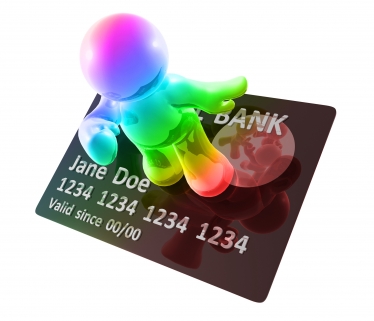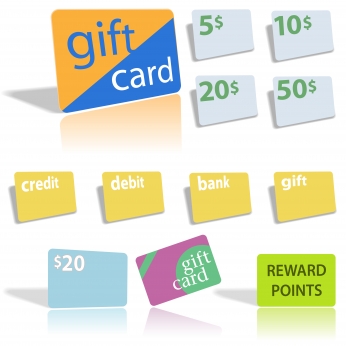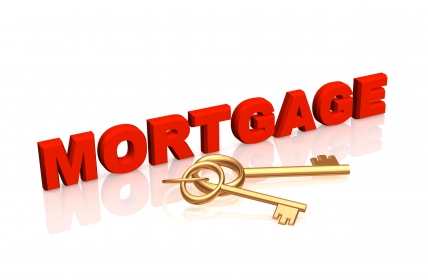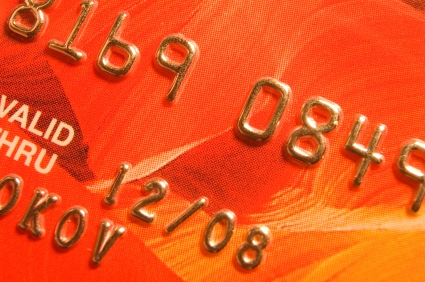Archive for September, 2009
Tuesday, September 8th, 2009
 What is a credit card issuer to do when they’ve promised you a low rate for the life of the balance? What is a credit card issuer to do when they’ve promised you a low rate for the life of the balance?
Right now they’re all trying to minimize risk and increase profit sources as quickly as possible. Once the new “Credit Cardholder’s Bill of Rights” goes into effect in February they’re going to lose several lucrative sources of income, so they have to do something fast!
Not to fear – they’ve found a way to lower their risk, even if they can’t increase their profits from you. That’s to increase your minimum payment. Their right to do that is probably buried somewhere in the fine print of your contract, so now they’ll take advantage of it.
Unfortunately, when credit was easy and card issuers were luring everyone with low fixed rates and high credit lines, some of us came to view credit cards as easily accessible long-term credit. Rather than going to a bank to get a home equity loan for that remodeling job, we put it on the credit card. Rather than paying 6, or 8 or 10 percent on a loan for a used car, we wrote a cash advance check on a credit card.
That worked well for many, as long as the credit issuer stayed with the terms they offered at the outset. But now, consumers with a balance of $20,000 or more on a credit card are finding themselves between a rock and a hard place.
Yes, the low rate is still the same, but the minimum payment may have doubled or tripled!
It’s hard to understand the rationale behind these moves, because moving a minimum payment out of the consumer’s ability to pay is likely to result in the very defaults that the banks were worried about. A person who could manage a $500 payment may throw up his or her hands in defeat when told that they must come up with $1,200 per month.
Some financial advisors say to call the company and explain your situation. Tell them you can definitely continue to pay your old monthly minimum, but that the increase could push you over the edge into bankruptcy – in which case, they’ll get nothing. In some cases, especially if you’ve never been late with a payment, they may agree to revert to your old minimum.
If that won’t work, start looking for a fixed rate loan that will allow you to pay off the card. You’ll no doubt pay higher interest, but your monthly payment will be manageable.
Author:Marte Cliff
CreditScoreQuick.com your resource for free credit reports, credit cards, loans, and ground breaking credit news.
Posted in Uncategorized | Comments Off
Tuesday, September 8th, 2009
 Consumers are becoming weary of debt – many simply don’t want to own a credit card and take the chance of making an impulse purchase. And yet, in some instances plastic is necessary. Shopping on line, for instance, generally requires a credit card. For them, a pre-paid card is the answer to shopping, but controlling spending. Consumers are becoming weary of debt – many simply don’t want to own a credit card and take the chance of making an impulse purchase. And yet, in some instances plastic is necessary. Shopping on line, for instance, generally requires a credit card. For them, a pre-paid card is the answer to shopping, but controlling spending.
A pre-paid card’s limit is set by the amount of funds you’ve deposited, just like a checking account. So why not simply use a debit card tied to a checking account when shopping on line?
Some consumers simply don’t want to own a checking account. They’ve had troubles stemming from account mis-management and don’t want to take the chance of bounced check fees, overdraft fees, etc. Some of those consumers are not even able to obtain a checking account due to past troubles that have destroyed their credit ratings.
Their only choices are cash or a pre-paid credit card. Since many retailers and even utility companies will now accept credit cards on line for payment, the pre-paid card is a convenience for bill-paying. Going on line is much easier than buying and mailing money orders, and the on-line receipt offers assurance that the bill was paid.
Who else benefits from using pre-paid credit cards?
Employees whose employers are now making a direct deposit to employee credit cards rather than issuing checks.
Gift givers who want to give their loved ones the option of choice that’s absent when giving a gift card from a specific store.
Parents who supply funds to children away at school via deposits to their pre-paid credit cards.
Government agencies that seek to control fraud and reduce costs while distributing benefits to recipients in welfare and food stamp programs.
Travelers who prefer the convenience of a card over cash, but who don’t want to use their credit cards to an extent that would damage their credit scores.
Employers who provide per diem travel expenses to employees on the road.
As with any other credit card, shop and compare offerings before choosing. Each pre-paid credit card issuer has its own rules and policies. Thus you could find a vast difference in both the number and cost of fees from one card to another.
You might find fees for:
• Application
• Activation
• Annual maintenance
• Monthly maintenance
• Each Transaction
• Balance Inquiries
• Statements
• Customer service calls
Also similar to other credit and debit cards – you could be subject to “holds” if you use the card for gasoline, car rentals, or hotel reservations.
Author:Marte Cliff
CreditScoreQuick.com your resource for free credit reports, credit cards, loans, and ground breaking credit news.
Posted in Uncategorized | Comments Off
Monday, September 7th, 2009
 Because mortgage loan modification is nothing more than a temporary reduction in interest rates, many financial experts believe it should have no impact on credit scores. It should not trigger a notation on a consumer’s credit report any more than does a temporary or promotional reduction in a credit card interest rate. Because mortgage loan modification is nothing more than a temporary reduction in interest rates, many financial experts believe it should have no impact on credit scores. It should not trigger a notation on a consumer’s credit report any more than does a temporary or promotional reduction in a credit card interest rate.
However, that’s not how FICO sees it at this time.
Lenders who follow reporting guidelines, will report loan modifications to FICO as a “Partial Payment Plan,” which is damaging to a consumer’s credit scores.
These new guidelines were issued as a result of agreement between the Consumer Data Industry Association and the credit bureaus. Apparently, representatives from FICO were not first consulted to determine how a consumer’s credit scores might be affected.
The possible reason for this apparent oversight could be that FICO has yet to conduct research into how loan modifications should or should not affect credit scores. They do not yet know if loan modification makes a consumer a higher credit risk.
Since loan modifications are a relatively new solution, it could be years before sufficient information is gathered to make a true determination.
Some in the industry insist that consumers who have their loans modified are merely postponing the inevitable – that many, if not most, will be in default again within 6 months.
Consumer advocates maintain that the “Partial Payment Plan” designation is false, misleading, and unfair to consumers who see their credit ratings drop as a result. A loan modification does nothing to reduce the balance due. The consumer will still be obligated to pay the entire balance, and the interest rate reduction will not be permanent. Thus, consumers who take advantage of this portion of the “Making Home Affordable” program should not be penalized by lowered credit scores.
When it comes to FICO scores, however, loan modification is the least of the evils faced by homeowners who are upside down in their mortgages. The only option that will not damage scores is selling the house for enough to cover all outstanding debt against it.
The following cause even greater damage to credit scores:
Short sales, which are reported as charge offs, settlements, or the initial steps toward foreclosure.
Foreclosures, which are, of course, reported as foreclosures.
Forfeitures in lieu of foreclosure are reported as a voluntary foreclosures.
Short refinances are reported as settlements or charge offs. A short refinance is a refinance with the same lender, but with a portion of the principle balance forgiven.
Author:Marte Cliff
CreditScoreQuick.com your resource for free credit reports, credit cards, loans, and ground breaking credit news.
Posted in Uncategorized | 8 Comments »
Thursday, September 3rd, 2009

Credit Card holders are glad to see that relief is coming in February, although card issuers have been using this time to raise rates, add fees, and change programs so drastically that their costs will still be high.
At least after February card issuers will no longer be allowed to slash credit lines below the customer’s existing balance or change interest rates on those existing balances. That alone is a huge relief for consumers who are in debt on credit cards.
But consumers who use credit cards aren’t the only ones who are being affected by the bank’s efforts to raise their profit margins.
Have you thought about those retailers who take your credit card in payment for goods and services? The card issuers have been raising their fees as well, and it is cutting deeply into profits for many of them. Some say that on low dollar / low-profit items, they are actually going in the hole with each purchase made on a charge card.
The agreement that retailers make with the card issuers when they set up accounts says that they aren’t allowed to treat credit card customers any differently than cash customers, but some retailers are now ignoring that agreement.
According to reports, the card issuers could cancel their retail accounts for this bit of non-compliance, but the so many retailers are fighting back that they aren’t taking steps against them – at least not yet.
Retailers across the country have begun posting signs regarding low-dollar credit card charges. Some say they will not accept a credit card for purchases under a set amount. I’ve seen both $5 and $10. Others are charging a $1 “transaction fee” when they accept a card for a purchase under $10.
And of course, some angry consumers are calling banks and demanding that these retailers be forced to stop the practice.
It appears that fees charged do vary greatly from one bank to another. Some of the smaller banks are much more retailer-friendly than large banks, so retailers have begun transferring their business.
This is a service and we all do expect to pay for services, but no one wants to be charged excessively.
So while we have long been advising consumers to compare credit cards carefully before choosing, it is now evident that retailers should compare carefully before choosing the bank for their retailer accounts.
Meanwhile, in an effort to stay in business, many retailers are raising their prices to cover the added expense. That means that even those consumers who have gone back to using cash are going to pay for the increase in banking fees.
Author: Mike Clover
CreditScoreQuick.com your resource for free credit reports, credit cards, loans, and ground breaking credit news.
Posted in Uncategorized | 2 Comments »
Thursday, September 3rd, 2009

Yes, under the new Fannie Mae guidelines effective September 1, you can. In fact, you can go into credit card debt for up to 2% of the value of your new mortgage loan.
Borrowers are still not allowed to use credit card proceeds for the down payment, but may use them for certain costs paid outside of closing and early in the application process. This would include lock-in fees, origination fees, commitment fees, credit report fees, and appraisal fees.
This may sound good on the surface, but is it? It may not be smart, and in today’s climate of shrinking credit card limits, it might not even be possible for most people.
Charging an amount of this size requires two things: A very high FICO score going in, and very high credit limits on your credit cards.
We’ve been told for years that in order to keep credit scores high, we should not use more than 30% of the available balance on any one credit card. If you plan to charge 2% of the value of a $200,000 home loan, you’d be adding $4,000 to your credit card balance. That means your limit has to be more than $13,334.00 – with no other charges on the card, of course.
If you begin the loan process with a FICO score that’s “on the edge” of score limits to obtain the best rates, using your credit card for these purchases could lower it that one or two points to drop you into a higher interest rate bracket.
And if you use the card early in the process it could get worse…
We’ve been seeing consumers across the country suddenly hit with credit card limits below their outstanding balance – especially if they have just made a large purchase or gotten a cash advance. This practice will be outlawed in February, but right now you might charge that $4,000 in costs against a $14,000 credit limit – then find that your credit limit has been reduced to $3,000. That will really hurt your FICO scores.
Consider carefully before using a credit card for loan costs.
This change also means more work for your mortgage broker. In order to use a credit card for these fees, the lender must verify that the borrower has sufficient liquid funds to cover the charges, in addition to other funds needed for closing. Or, the lender can re-calculate the credit card payment to account for the new charges, then use the updated payment to re-calculate the qualify loan ratio.
Author:Marte Cliff
CreditScoreQuick.com your resource for free credit reports, credit cards, loans, and ground breaking credit news.
Posted in Uncategorized | Comments Off
Disclaimer: This information has been compiled and provided by CreditScoreQuick.com as an informational service to the public. While our goal is to provide information that will help consumers to manage their credit and debt, this information should not be considered legal advice. Such advice must be specific to the various circumstances of each person's situation, and the general information provided on these pages should not be used as a substitute for the advice of competent legal counsel.

|
 What is a credit card issuer to do when they’ve promised you a low rate for the life of the balance?
What is a credit card issuer to do when they’ve promised you a low rate for the life of the balance?


 Consumers are becoming weary of debt – many simply don’t want to own a credit card and take the chance of making an impulse purchase. And yet, in some instances plastic is necessary. Shopping on line, for instance, generally requires a credit card. For them, a
Consumers are becoming weary of debt – many simply don’t want to own a credit card and take the chance of making an impulse purchase. And yet, in some instances plastic is necessary. Shopping on line, for instance, generally requires a credit card. For them, a  Because mortgage loan modification is nothing more than a temporary reduction in interest rates, many financial experts believe it should have no impact on credit scores. It should not trigger a notation on a consumer’s credit report any more than does a temporary or promotional reduction in a credit card interest rate.
Because mortgage loan modification is nothing more than a temporary reduction in interest rates, many financial experts believe it should have no impact on credit scores. It should not trigger a notation on a consumer’s credit report any more than does a temporary or promotional reduction in a credit card interest rate.

